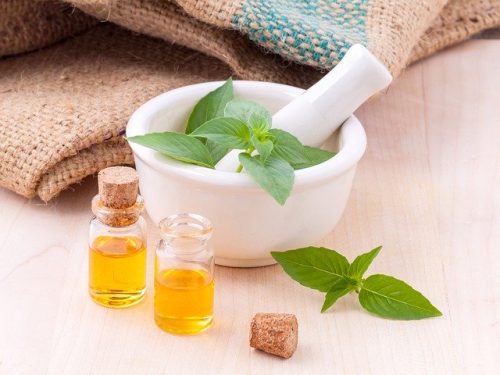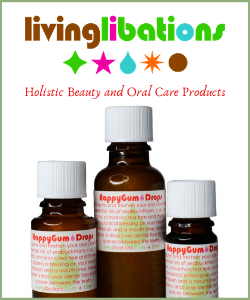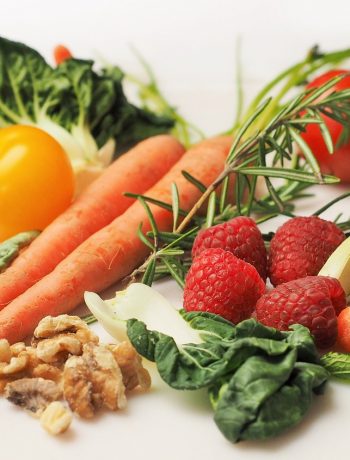This post contains affiliate links, which means I may earn some money if you click on one. Don't worry, there is no additional cost to you. Thank you for supporting my blog.
Did you know cavities can be healed?
If a cavity is in the enamel, there is a good chance of healing it. I know this is possible because I have done it. The hole in the tooth won’t fill in, it sort of scabs over. (Like a scar). Sadly most dentists will put a “watch” on an area of concern, but do not tell you how to stop the decay.
Cavities between the teeth are very difficult to remineralize. The saliva, which carries the minerals, has a hard time getting in between the teeth.
Once the cavity reaches the dentin, it is also very difficult to heal. (Though I did heal a small cavity in the dentin of one of my teeth).
If the rate of decay is higher than the rate of re- mineralization, it will be really hard to stop the decay. Ozone can help with this, and some Holistic Dentists use ozone to halt tooth decay. I have personally witnessed ozone stopping decay. A filling will likely be needed, but this is preferable to a tooth extraction or a root canal.
Some books on this topic ..
Holistic Dental Care: The Complete Guide to Healthy Teeth and Gums
Cure Tooth Decay
Dental Diet
Mouth Matters
How to Stop Cavities
Colostrum
“Colostrum is the pre-milk fluid produced from the mother’s mammary glands during the first few hours after birth (72 hours after birth for human mothers, 0-6 hours for Bovine (Cow) Mothers). It provides over 700 life-supporting immune, essential and growth factors that ensure the health and vitality of the newborn.” Source
Adding this supplement to your diet may prevent cavities. I am familiar with one success story where someone halted tooth decay by consuming colostrum powder every day and even placing it on her teeth.
My family takes Colostrum6 because it supports the immune system and our oral health.
Colostrum6 – Order here
Salt Water Rinse
One way to keep the micro-biome of your mouth healthy is to swish with salt water in the morning.
The alkaline pH encourages the growth of the “good bacteria”, which compete with the bacteria that can cause cavities.
To make it mix 1 oz of Celtic sea salt with 16 oz of water. (I use a small kitchen scale for this).I like to put in one drop of an essential oil blend from Living Libations called “Happy Gum Drops“. It helps the mouth feel fresh. (Just one drop in the 16 oz of water, a little goes a long way).
We pour a small amount of the salt water rinse into a tiny glass, and swish around approximately 1-2 TBS every day.
It is important to rebalance the pH in the mouth in the morning when you wake up and at night before falling asleep because many people through the mouth instead of the nose while sleeping. (This is not supposed to happen but it is an unfortunate reality of our modern age).
Adjusting the pH in this way can encourage re-mineralization and help prevent cavities.
Dental Diet
In the book The Dental Diet the author, makes a compelling case for a diet that includes properly sourced dairy, eggs, and organ meat.
I have read a few books about how to develop a wide palate and strong teeth with nutritionally dense food. Animal fats with vitamin A and D, B12 and DHA are a big piece of the nutritional puzzle for a WIDE PALATE. Folate from liver is very beneficial too. Bone broths are a good source of minerals.
The reason why many Americans do not have room in their jaws for their wisdom teeth is malnutrition. This is also the reason why so many kids need braces.
If you have young children, or are going to have kids soon, I highly recommend this book.
It is very difficult to obtain adequate amounts of the vitamin B12 without consuming animal products. Vitamin A is difficult to obtain from plants too.
Many people have a genetic mutation which prevents them from converting the vitamin A in veggies to the active form we need for our body. The Vitamin A in Cod Liver Oil does not have to be converted before the body can use it.
Organ Meats
Our ancestors consumed more than muscle meat. Organ meats, otherwise known as offal, was an integral part of their diet. Nothing was wasted; hearts, livers, and bone marrow were consumed.
The fat soluble vitamins available in organ meats are very valuable to our body, especially our teeth. These vitamins include A,D, E and K.
Dr. Weston Price, a dentist from Ohio, traveled around the world to investigate the cause of tooth decay and narrow palates in Americans. He observed that people who had a diet rich in fat soluble vitamins had healthy teeth and wide palates.
So how can you incorporate these nutritionally dense foods into your diet?
You can consume traditional foods like liver, heart, and bone marrow, or you can take them in supplement form. I do both with my kids. They LOVE liverwurst, so we eat it a few times a week. We also consume organ meats in dessicated form, (specifically liver and bone marrow).
Good quality is very important when consuming organ meats. Ancestral Supplements is a brand that is hormone, pesticide, and GMO free.
You can buy bone marrow here
You can buy dessicated liver pills here
Vitamin D
Did you know if you ate food high in calcium but your body did not have enough vitamin D, it would only absorb 10-15 percent of the calcium you consumed?
We simply cannot talk about strong teeth without discussing Vitamin D. Low vitamin D has been linked to risk of tooth decay in kids and gum disease in adults.
Vitamin D From the Sun
Exposure to the sun is a great way to raise vitamin D levels. When I was pregnant, I raised my vitamin D levels to acceptable levels in 3 days by getting at least 20 minutes in the sun during “peak time”. (I had my levels tested before and after).
Vitamin D From Supplements
Cod Liver Oil is another way to raise vitamin D levels, and consuming Cod Liver Oil and Butter Oil is an important part of the “Cure Tooth Decay” protocol in the book by Ramiel Nagel.
CLO is a nutritional powerhouse which consists of Vitamin A, Vitamin D, and DHA. If you cannot tolerate Cod Liver Oil, you will need to find a way to get enough of these vitamins from other supplements.
A trick I learned with Vitamin D, however, is it should be consumed with fat. In the winter, I often supplement with these vitamin D drops from Seeking Health. These drops are in Olive Oil, and one drop contains 2,000 IU of Vitamin D.
Vitamin D Testing
How do you know if your vitamin D levels are adequate? The only way to know for sure is to test your levels. The Vitamin D council has a vitamin D kit you can use to test from the comfort of your own home, it costs between $50-60. Or you can request the test from your doctor.(I have used both methods).
Oral Probiotics
Biodiversity is important for any ecosystem, including the microbiome in your body.
Sadly the overuse of antibiotics has led to a decrease in the number of species of beneficial bacteria in our gut and our mouths. (The two are connected).
It is not a coincidence when parents see problems with decay in their children’s teeth after a child receives antibiotics. Some species of beneficial bacteria are killed by antibiotics, and have a hard time repopulating the mouth. (Especially if the conditions are not ideal for growth).
Dental decay is often associated with the notorious Streptococcus mutans, but the root cause of decay is very complex. S. mutans has been around for a LONG time, and it’s presence alone is not enough to cause dental caries. When the population of S. Mutans is not kept in check, the result is dental decay. (If the enamel is weak from a diet missing key nutrients and vitamins. Strong teeth can resist dental caries).
Like everything else in life, optimal health is about BALANCE.
Bad breath and cavities is an indicator of an imbalance in the microbiome in your mouth.
Fortunately there is a way to tip the balance back in your favor. There are probiotics you can take that have beneficial bacteria which can reverse bad breath and prevent S. mutans from dominating the ecosystem in your mouth.
The specific brand of probiotics I used to heal a cavity is Hyperbiotics PRO-Dental. It is actually designed for Oral Health.
You can find oral probiotics here
Xylitol
The dentist said candy can be good for my teeth.
Wait – what? Yes you heard that correctly. Not just any candy can prevent cavities, it has to have xylitol in it.
Parents who shun fluoride often want to know how to prevent decay. If fluoride was very effective at preventing decay, cavities would be non-existent in our country. Most cities still fluoridate the water supply, and still cavities are a big problem.
I digress.
One holistic dentist we consulted recommends xylitol candy or gum as part of a holistic preventive strategy. It sounds pretty crazy, but let me le me explain the reason why.
Xylitol is a natural product which comes from birch trees, and grasses. It tastes sweet like sugar but it has a low glycemic index, therefore it safe for diabetics. When the harmful bacteria absorb the xylitol, they die because they cannot metabolize it properly. In six months it is possible to eliminate the harmful bacteria in your mouth.
How Much Xylitol is Needed
Children and adults need 6-8 grams of xylitol per day. The pamphlet I received from our dentist says to “strive for five”, because this preventive method works best if broken up into 5 doses per day. If you brush with Xylitol toothpaste/tooth powder twice a day, and have a piece of gum or a mint after every meal you can easily achieve this goal.
Xylitol is available in gums, mints, chocolates, lollipops, candies, and toothpaste, (When I was working to re-mineralize a cavity, I used a homemade tooth powder with xylitol in it).
I have only used the toothpaste and gum. (I do not want to encourage my kids to eat candy daily). But if you have a child who loves lollipops and you are concerned about the sugar, this might be useful information for you.
You want to look for products that are 100 percent xylitol. It should be the first ingredient listed, if other sweeteners are listed this method will obviously not work.
Cell Salts
Teeth Enamel is the most mineralized tissue of the body. It is so hard because 95-98% of it is hydroxyapatite crystals, made from calcium and phosphate ions.
So how does bacteria penetrate something so hard? Sometimes the raw materials the body needs to build the enamel are not available, or the body has difficulty utilizing the minerals. This results in thinner enamel. (It is very common with children in this modern age).
However with homeopathy, the REASON does not matter, only the SYMPTOMS matter. If someone has weak enamel there are homeopathic cell salts that can help.
The three cell salts that are indicated for thin enamel is:
Calc phos 6x, Calc fluor 6x, and Silica 12x. To harden teeth the recommended dose is to take the remedy 3 time a day. Do not take the remedie 15 minutes before or after eating, and do not store the remedies near your cell phone.
Homeopathic Cell Salts can be found here
Flossing
Let’s talk about flossing. It’s something many of us are not consistent with. (Myself included).
When I was a child I did not floss never floss yet I never had any cavities. (Some people are resistant to cavities for different reasons, but that deserves a separate post).
So is flossing really necessary?
Flossing is necessary in our modern world. In societies, where people consume nutritionally dense food, palates are wider and more developed. The proper spacing of teeth means less food gets stuck between them. Also, teeth are stronger and therefore resistant to cavities AND the microbiome in the mouth is more diverse.
How to Floss
What floss is best? My holistic dentist recommends thicker floss, such as Coco floss. I use a thick floss called Dr. Tung’s which is a little less expensive.
So how do we teach our kids how to floss? (Cavities between the teeth with kids has become more common).
First, I have my daugher lay down on my lap on the couch. Then, I put one drop of “Happy Gum Drops” from Living Libations on it and I floss. I sometimes use a little ozone gel on the floss too.
Laying down makes it easier to see inside the mouth than standing. It also makes flossing more relaxing for your child.
If you have not flossed in a while, the gums may bleed a little. Don’t be alarmed, that is normal.
Flossing is not just about removing food from between the teeth, it is also massages and strengthens the gums. This is why the thicker floss is recommended. Healthy gums should be snug around the teeth, like a turtleneck. If the gums are not healthy bacteria can get into the gums and cause many problems.
You can find Dr Tungs floss here
Tongue Scraping
Your tongue can harbor all kinds of micro-organisms, they migrate up from the alimentary canal at night. If your micro-biome is not “balanced”, this can cause bad breath.
Using a tongue scraper to remove the coating of microbes on your tongue can greatly improve your oral health. It can also help with bad breath and even make food taste better!
I use a tongue scraper, but you can use the back of a spoon. You scrape your tongue from back to front, and rinse off the scraper in between scrapes.
If you are observant, you will notice how different your tongue looks when you eat properly.
You can add an essential oil blend designed for the mouth, (such as the Happy Gum drops from Living Libations). However, I save those precious drops for my floss and mouth wash.
You can find a tongue scraper here
Oil Pulling
Oil pulling is an ancient ayurvedic technique used to keep the mouth healthy.
It can heal bleeding gums, whiten teeth, and freshen the breath. When I consistently oil pulled, my teeth were so much brighter, I need to start doing it again.
Choose which oil works best for you. Sesame Oil and coconut oil are two oils I have used and both are recommended for oil pulling.
Swish about a tablespoon of oil in your mouth for 10-20 minutes, (or as long as you can tolerate).
When you are done, spit into the garbage or a can/jar. Don’t spit the used oil in the sink.
Oil pulling is not a substitute for flossing, it is best characterized under “extra care”. Flossing is still recommended to massage the gums and remove debris from the gum line and between the teeth.
Buffering Capacity
Are some people more susceptible to cavities? Absolutely. However, this does not mean there is nothing that can be done to prevent them.
Buffering capacity is one aspect of oral health that is genetic. What is that? In short, it is the ability of the body to use saliva to return the pH in the mouth from an acidic pH to a neutral pH.
For example, someone can drink an acidic drink, like apple juice, and test the pH in their mouth and a moment later their pH will be neutral. Someone with a high buffering capacity will have a lowered risk of having cavities.
The cool part is there is a way to test for this. There are tests available at some dentists office, but you can do it yourself. You can buy pH strips, called litmus paper, which measure pH.
How to Test Your Buffering Capacity
First, swish with a teaspoon of an acidic drink of your choice for 20 seconds. After spitting out the drink, test your pH. If it is neutral, you are done. (Congratulations, you have a high buffering capacity).
If your mouth pH is not neutral …. pretend to chew something while running your tongue over your teeth. Check your pH every minute until you have a neutral pH. (If after 5 minutes your pH is still not neutral, your buffering capacity is very low. You may need to manually neutralize your mouth to prevent cavities). This information was obtained from a book called “How to Stop Cavities“, by Judene Benoit, DDS.
How do you manually neutralize your mouth? You simply need to figure out what foods and drinks can help neutralize your mouth. One holistic dentist I consulted with recommended swishing around with a mix of baking soda in water after eating acidic foods. (Just 1 tsp per cup of water should do the trick).
I find it empowering to know there is something more I can do to preserve my pearly whites than just brushing and flossing. I intend on keeping my mouth healthy and free of cavities.
Oral Irrigators
Did you know that people who are in good health but develop serious periodontal disease DOUBLE their risk of fatal heart attack and TRIPLE their risk of stroke? (This is according to Thomas E. Rams, DDS, MHS expert on the microbiology of gum disease).
Taking good care of our gums is very important. If the gums become weak and damaged, they essentially become open wounds in which bacteria can invade our body. (yuck)
In addition to making flossing a daily part of my oral care routine, I have taken additional steps to showing my gums some love.
Oral irrigators are another tool you can use to keep your gums healthy. The two brands that I have read are good are Waterpik and the VitaPick. Oral irrigators are used to rinse out the debris you miss when you floss.
Gum Tool
A rubber tipped gum tool is a tool designed specifically for the gum line, or sulcus. You use this tool to follow the gum line and gently remove any debris that has collected along the gums. (I like to add a drop of Living Libations Happy Gum Drops sometimes to the gum tool sometimes, but it is not necessary).
You will be shocked by how much gunk you remove.
If your gums are in really bad shape, there is an SOS rinse I have read about, which was developed by Hal A. Huggins, DDS. You dissolve half a tsp of salt in a glass of warm water and vigorously swish with it every hour for two days. On the half hour rinse with sodium ascorbate vitamin C powder. (It HAS to be this type of vitamin C, the other types are very acidic).
Toothpastes
True story – when we lived in South Korea my husband and I had to import fluoridated toothpaste in our suitcases. The toothpastes available in Korean stores did not contain fluoride.
I did not think much of this until I was pregnant, I simply could not tolerate fluoridated toothpaste, it made me VOMIT.
Of course once I learned Fluoride is a neurotoxin, it made sense. I have consulted with Biological and Holistic dentists, and none of them recommend fluoridated toothpaste.
So what do you use instead? There are many natural toothpastes on the market, you need to find one that works best for you.
Natural Brands of Toothpaste
Living Libations is my favorite brand of natural toothpaste right now. The ingredients are olive oil, coconut oil, baking soda, neem oil, and cinnamon. (Neem oil is not to be used if pregnant, just an fyi).
Earthpaste is another brand of toothpaste I tired, though my mouth does not feel very fresh after. I used the lemon one because it did not interfere with homeopathic remedies.
The most economical way to clean your teeth is to make your own toothpaste or powder. I have done this before and will probably start doing this again. I have read just using baking soda and salt works well, and those are two of the ingredients I use in my tooth powder.
This is sort of the “old fashioned” way to brush teeth and I am not sure why our society deviated from it. (Clever marketing and $ is my guess).
Ingredients in Conventional Toothpaste
Here are some of the ingredients from conventional toothpaste – Fluoride, propylene glycol, FD&C color pigments, triclosan, artificial sweeteners, ethanol, detergents and surfactants, trisodium phosphate, carbomer, hydrated silica, carrageenan, and glycerin.
Glycerin will coat the teeth and prevent the saliva from remineralizing the enamel. How does that make any sense?
Read the label of your toothpaste. If it contains fluoride, read the warning about fluoride very carefully. (It says not to swallow it). How many young children are swallowing fluoride because they can not spit properly?
There are toothpastes that are designed specifically for re-mineralizing. I used a few in the past, when I was healing a cavity. However I switched to a homemade version which had similar ingredients but cost less money.
Good quality toothpastes ARE expensive, but I have found a little bit goes a LONG way.
Toothpaste from Living Libations can be found here
Hopefully this article empowers you with information to keep your teeth healthy and prevent cavities and halt decay. I had no idea oral care went so far beyond just brushing and flossing until I read those books.
What steps do you take to keep your mouth healthy?






No Comments